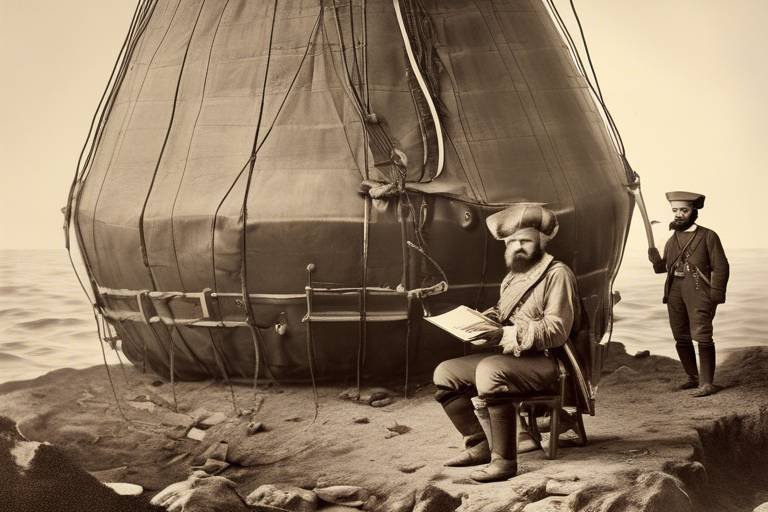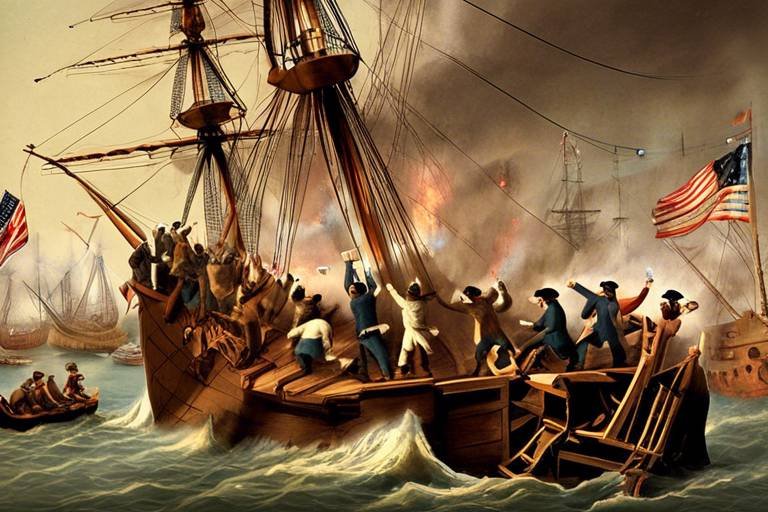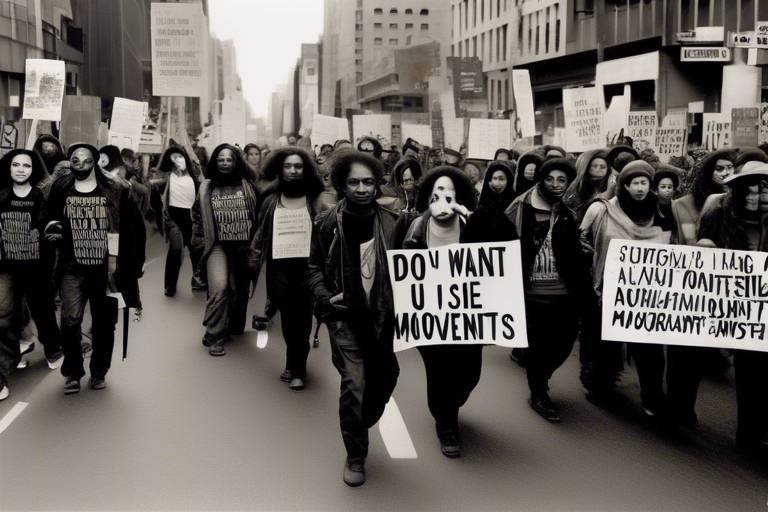The History of Slavery - From Ancient Times to Abolition
Throughout history, the practice of slavery has left a dark and lasting impact on societies around the world. From its early origins in ancient civilizations to its eventual abolition, the evolution of slavery reflects a complex interplay of economic, social, and moral factors.
Slavery can be traced back to ancient societies such as Mesopotamia, Egypt, Greece, and Rome, where it was deeply ingrained in the fabric of daily life. Captives of war, debtors, and individuals sold into servitude formed the backbone of labor forces, sustaining the economies of these early civilizations.
One of the most notorious chapters in the history of slavery is the Transatlantic Slave Trade, a brutal system that forcibly transported millions of Africans to the Americas. Driven by economic greed and the demand for cheap labor, this trade had far-reaching consequences that continue to reverberate today.
The emergence of abolitionist movements in the 18th and 19th centuries marked a turning point in the fight against slavery. Visionaries like William Wilberforce and organizations such as the Anti-Slavery Society spearheaded campaigns to end the inhumane practice and recognize the inherent rights of all individuals.
Slavery's impact on the global economy cannot be overstated. The exploitation of enslaved labor in plantations fueled the rise of empires and shaped trade networks that spanned continents. The legacy of this economic exploitation continues to influence modern-day power dynamics.
Enslaved individuals did not passively accept their fate. From small acts of resistance to large-scale rebellions, slaves fought back against their oppressors, challenging the very foundations of the institution of slavery.
Legal and political measures, such as the Emancipation Proclamation in the United States, marked significant milestones in the abolition of slavery. These declarations paved the way for the recognition of freedom and equality for all individuals, regardless of their background.
The legacy of slavery endures in contemporary society, shaping race relations, social justice movements, and ongoing efforts to address historical injustices. The scars of the past continue to influence present-day debates on equality and human rights.
Despite the abolition of traditional slavery, modern-day forms of exploitation persist. Human trafficking, forced labor, and other insidious practices continue to thrive, highlighting the ongoing need for global cooperation to combat these human rights violations.

Ancient Origins of Slavery
Exploring the evolution of slavery from its early roots in ancient civilizations to its eventual abolition in various parts of the world, highlighting key events and shifts in societal attitudes towards this inhumane practice.
The origins of slavery can be traced back to ancient societies such as Mesopotamia, Egypt, Greece, and Rome. In these civilizations, slavery became deeply ingrained in the social and economic structures, with enslaved individuals serving as laborers, domestic workers, and even soldiers. The concept of owning another human being as property was a fundamental aspect of these early civilizations, shaping power dynamics and social hierarchies.
Slavery in ancient times was often a result of conquest, where individuals captured in war were enslaved and forced to work for their captors. This practice was justified through various means, including religious beliefs, cultural norms, and economic considerations. Enslaved individuals had no legal rights and were treated as property, subject to the will of their owners.
The institution of slavery in ancient civilizations was a complex system that permeated all aspects of society, influencing trade, agriculture, and governance. The exploitation of enslaved labor was essential for the functioning of these societies, enabling the accumulation of wealth and the maintenance of social order.
Despite the harsh conditions faced by enslaved individuals, resistance and rebellion were not uncommon. From acts of sabotage to organized uprisings, enslaved people found ways to challenge their oppressors and assert their humanity. These acts of resistance laid the foundation for future movements against slavery and oppression.

Transatlantic Slave Trade
The Transatlantic Slave Trade stands as one of the most horrific chapters in human history, characterized by the systematic trafficking of millions of African men, women, and children to the Americas for forced labor under brutal conditions. This barbaric trade, spanning over four centuries from the 16th to the 19th centuries, was primarily driven by the insatiable demand for cheap labor in European colonies, particularly in the Caribbean and the southern United States.
The trade network involved European slave traders establishing forts along the African coast to capture and purchase enslaved individuals from local chieftains in exchange for goods such as firearms, textiles, and rum. These captives were then crammed into overcrowded and unsanitary ships for the perilous journey across the Atlantic, known as the Middle Passage, where many perished due to disease, starvation, and harsh treatment.
Upon reaching the Americas, the enslaved Africans were auctioned off like commodities and subjected to backbreaking labor on plantations producing lucrative crops such as sugar, tobacco, and cotton. The dehumanizing conditions they endured, including physical abuse, exploitation, and family separation, underscored the profound cruelty of the institution of slavery.
The Transatlantic Slave Trade not only enriched European powers and their colonies but also had far-reaching consequences on African societies, disrupting traditional social structures, fueling conflicts, and perpetuating cycles of poverty and underdevelopment that continue to impact the continent to this day. The legacy of this dark period reverberates through generations, highlighting the enduring scars left by this abhorrent practice.

Abolitionist Movements
Exploring the evolution of slavery from its early roots in ancient civilizations to its eventual abolition in various parts of the world, highlighting key events and shifts in societal attitudes towards this inhumane practice.
Investigating the origins of slavery in ancient societies such as Mesopotamia, Egypt, Greece, and Rome, and how it became ingrained in the social and economic structures of these civilizations.
Examining the brutal system of forced labor that transported millions of Africans to the Americas, the economic motivations behind the trade, and the lasting impact it had on both continents.
The 18th and 19th centuries witnessed a remarkable rise in abolitionist movements, spearheaded by individuals and organizations dedicated to ending the abhorrent practice of slavery. These movements were fueled by a deep sense of moral outrage and a growing recognition of the inherent rights of all individuals. Visionaries like William Wilberforce in Britain and Frederick Douglass in the United States tirelessly campaigned for the emancipation of enslaved people, challenging the status quo and advocating for social change. Their efforts paved the way for legislative reforms and the eventual abolition of slavery in many parts of the world.
Analyzing the significant role that slavery played in shaping the global economy, from the exploitation of labor in plantations to the trade networks that facilitated the movement of enslaved people.
Exploring the various forms of resistance and rebellion undertaken by enslaved individuals, from small acts of defiance to large-scale uprisings that challenged the institution of slavery.
Examining the legal and political measures taken to abolish slavery in different countries, including the Emancipation Proclamation in the United States and similar declarations in other parts of the world.
Reflecting on the enduring legacy of slavery in contemporary society, including its impact on race relations, social justice movements, and efforts to address the ongoing effects of historical injustices.
Addressing the continued existence of slavery in various forms today, such as human trafficking, forced labor, and exploitation, and the ongoing efforts to combat these practices on a global scale.

Impact on Global Economy
The impact of slavery on the global economy cannot be overstated. It served as a cornerstone of economic prosperity for many nations, driving wealth and development through the exploitation of enslaved labor. Plantation economies in regions like the Americas thrived on the back-breaking work of enslaved individuals, producing lucrative crops like sugar, cotton, and tobacco for international markets.
Slavery also played a crucial role in shaping trade networks and financial systems. The demand for enslaved labor led to the establishment of complex supply chains that spanned continents, connecting producers, traders, and consumers in a web of exploitation. The trade in enslaved people became a profitable enterprise, fueling economic growth and enriching those who participated in this brutal commerce.
Furthermore, the profits generated from slavery contributed to the industrial revolution in Europe and the United States, providing capital that funded technological advancements and infrastructure development. The wealth accumulated from the labor of enslaved individuals laid the foundation for modern capitalism, creating economic disparities that persist to this day.
Despite the abolition of slavery in the 19th century, its economic legacy endures. The wealth accumulated from centuries of exploitation has shaped global economic systems, perpetuating inequalities and disparities between nations. The repercussions of slavery continue to be felt in the form of systemic racism, economic marginalization, and social injustices that persist in contemporary society.

Slave Rebellions and Resistance
When delving into the turbulent history of slavery, one cannot overlook the remarkable acts of resistance and rebellion exhibited by enslaved individuals. These courageous actions ranged from subtle defiance to full-fledged uprisings that shook the very foundations of the institution of slavery.
Enslaved people, despite their dire circumstances, found ways to resist their oppressors and assert their humanity. Through acts of sabotage, feigned illness, and slowing down work, they subtly challenged the authority of those who sought to exploit them for labor. These small but persistent acts of resistance were a testament to the resilience and spirit of those enduring unimaginable hardships.
However, the history of slavery also bears witness to more overt forms of rebellion. Large-scale uprisings, such as the Haitian Revolution and Nat Turner's Rebellion, stand as powerful examples of enslaved individuals rising up against their oppressors in a quest for freedom and justice. These rebellions sent shockwaves through the institution of slavery, demonstrating the indomitable will of those who refused to accept their subjugation.
Moreover, the resistance of enslaved individuals was not limited to physical confrontations. Intellectual resistance, such as the preservation of cultural traditions, languages, and spiritual practices, served as a form of defiance against the dehumanizing effects of slavery. By maintaining their cultural identity and heritage, enslaved people asserted their dignity and autonomy in the face of relentless oppression.
Slave rebellions and resistance movements were not only acts of defiance against individual slaveholders but also challenges to the entire system of slavery. These courageous acts paved the way for future generations to continue the fight for liberation and equality, leaving an enduring legacy of courage and resilience in the face of adversity.

Emancipation Proclamations
Emancipation Proclamations marked a pivotal moment in the history of slavery, particularly in the United States. One of the most notable proclamations was issued by President Abraham Lincoln on January 1, 1863, during the American Civil War. This proclamation declared that all enslaved individuals in Confederate states were to be set free. While it did not immediately free all slaves, it laid the foundation for the eventual abolition of slavery in the United States.
Emancipation Proclamations were not limited to the United States. Various countries around the world also issued similar declarations to end the practice of slavery within their borders. These proclamations were often the result of long-fought battles by abolitionist movements and individuals who recognized the fundamental rights of all human beings.
The Emancipation Proclamation in the United States, although a significant step forward, did not instantly eradicate slavery. It took further legislative measures, such as the 13th Amendment to the U.S. Constitution, to formally abolish slavery in the country. The impact of these proclamations reverberated globally, inspiring other nations to confront the moral and ethical implications of maintaining a system built on the exploitation and dehumanization of individuals.

Legacy of Slavery
The legacy of slavery continues to cast a long shadow over modern society, shaping the dynamics of race relations, social structures, and economic disparities. The deep-rooted impacts of centuries of exploitation and dehumanization are still evident in various aspects of life, prompting ongoing conversations about historical injustices and the need for reparative actions.
One of the most profound legacies of slavery is its enduring influence on race relations. The hierarchical systems of power and privilege established during the era of slavery have persisted through generations, manifesting in systemic racism and discrimination that continue to marginalize certain groups in society. The scars of slavery run deep, leaving a lasting imprint on the collective consciousness and contributing to the persistence of racial inequalities.
Furthermore, the legacy of slavery has fueled the rise of social justice movements that seek to address the historical wrongs inflicted upon marginalized communities. Movements such as Black Lives Matter draw attention to the ongoing impacts of slavery and advocate for meaningful change to dismantle oppressive structures and promote equality and justice for all individuals.
Moreover, efforts to reckon with the legacy of slavery extend to initiatives aimed at acknowledging and redressing the economic disparities that have persisted as a result of historical injustices. The wealth and resources accumulated through the exploitation of enslaved labor continue to shape economic opportunities and access to resources, highlighting the need for reparations and equitable policies to address the enduring effects of slavery.
In conclusion, the legacy of slavery serves as a stark reminder of the deep-rooted injustices that have shaped our world and continue to influence contemporary society. By confronting the legacy of slavery head-on, engaging in meaningful dialogue, and taking proactive steps towards reconciliation and justice, we can begin to address the lasting impact of this dark chapter in human history.

Modern-Day Slavery
Modern-day slavery continues to be a pressing issue in our world, manifesting in various forms that exploit vulnerable populations for profit and power. From human trafficking to forced labor and debt bondage, millions of individuals are trapped in situations of exploitation and abuse, deprived of their basic human rights and dignity.
One of the most prevalent forms of modern-day slavery is human trafficking, where individuals are coerced, deceived, or forced into labor or commercial sex work against their will. This illicit industry generates billions of dollars in profits for criminal networks, preying on the most marginalized and disadvantaged members of society.
Forced labor is another insidious aspect of modern slavery, with individuals compelled to work under exploitative conditions, often in industries such as agriculture, construction, manufacturing, and domestic service. These workers are frequently subjected to physical violence, debt bondage, and other forms of coercion that strip them of their autonomy and freedom.
Debt bondage, a form of modern slavery rooted in economic exploitation, traps individuals in cycles of debt that they cannot escape, forcing them to work in order to repay loans that are often impossible to settle. This practice disproportionately affects vulnerable populations, perpetuating a cycle of poverty and exploitation.
Efforts to combat modern-day slavery are underway on a global scale, with governments, non-governmental organizations, and advocacy groups working to raise awareness, strengthen legal frameworks, and provide support to survivors. Collaborative initiatives aim to dismantle trafficking networks, prosecute perpetrators, and protect at-risk populations from falling prey to exploitation.
Education and awareness are crucial in the fight against modern slavery, empowering individuals to recognize the signs of exploitation, report suspicious activities, and advocate for the rights of those who are vulnerable to exploitation. By shedding light on this dark reality and standing in solidarity with survivors, we can work towards a future free from the shackles of modern-day slavery.
Frequently Asked Questions
- What were the main causes of the transatlantic slave trade?
The transatlantic slave trade was primarily driven by the demand for cheap labor in the European colonies in the Americas. European powers sought to exploit the resources of the New World, such as sugar, tobacco, and cotton, leading to the need for a large workforce. This demand resulted in the brutal trafficking of African slaves to work on plantations.
- How did abolitionist movements contribute to the end of slavery?
Abolitionist movements played a crucial role in raising awareness about the inhumane conditions of slavery and advocating for its abolition. Through petitions, protests, publications, and legal battles, abolitionists pressured governments to enact laws that eventually led to the emancipation of enslaved individuals in various countries.
- What impact did slave rebellions have on the institution of slavery?
Slave rebellions and resistance efforts challenged the authority of slave owners and plantation systems, highlighting the inherent desire for freedom among enslaved individuals. While some rebellions were violently suppressed, they inspired others to resist and contributed to the eventual dismantling of the institution of slavery.
- How does modern-day slavery differ from historical slavery?
Modern-day slavery encompasses various forms of exploitation, including human trafficking, forced labor, and debt bondage, often occurring in clandestine industries and supply chains. Unlike historical slavery, modern slavery is illegal in most countries, yet it continues to thrive due to complex economic and social factors.



















